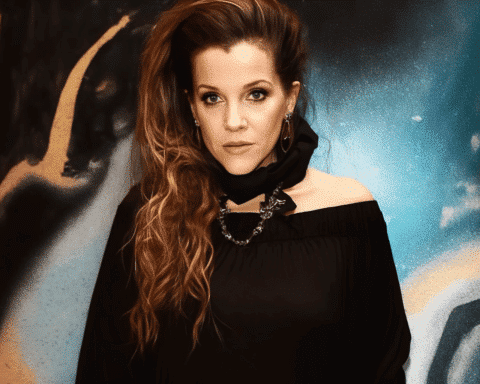TikTok has quickly become one of the most influential platforms for the music industry, providing a space for artists to connect with fans, share their work, and build buzz.
With its focus on short-form videos and user-generated content, TikTok has changed the way young people discover and consume music.
From established stars like Lizzo to emerging artists like Olivia Rodrigo, TikTok has played a significant role in the success of many musicians.
However, with the app’s ownership by Chinese company ByteDance and privacy concerns, TikTok’s future is still being determined, leaving the industry to consider what might come next.
The Grammy-nominated song “abcdefu” has become a hit due to its popularity on TikTok.
With over 1 billion monthly users, the app has become a powerful tool for promoting music, with several Grammy nominees, including Gayle and Muni Long, gaining popularity through TikTok videos.
According to Adam Miguest, CEO of Rapid Launch Media, “TikTok is 90% of the game.” However, as deals with major music labels expire, the labels are seeking a share of TikTok’s $14 billion in estimated advertising revenue this year, according to music industry analyst Tatiana Cirisano.
Despite this tension, TikTok and music labels remain closely intertwined as the music industry gathers for the Grammy awards.
An executive in the industry claimed that TikTok should pay five times more, comparing its payments to those of platforms such as YouTube.
However, TikTok restricts music clips to one minute and doesn’t offer full-length songs like other streaming apps.
In the midst of licensing negotiations, TikTok recently blocked certain users in Australia from using certain music in their videos.
An anonymous music industry source called it a negotiating tactic, while another said the reason is “open to interpretation.”
TikTok stated that the restriction on music usage was a temporary test and part of their efforts to gather information and enhance user experience.
A spokesperson from TikTok stated that the change will not last long and not all music is impacted. TikTok declined to comment on their negotiations with music labels.
The app is important to the music industry as it is widely used by young consumers who serve as music trendsetters, including established groups such as the Rolling Stones.
According to the latest data from Midia, 50% of consumers aged 16 to 24 use TikTok weekly, and another 40% check it daily.
TikTok is second only to YouTube in terms of being a platform where Gen Z discovers new music, as noted by Midia.
TikTok is considered integral to the way younger people engage with, discover and consume music, said Tatiana Cirisano.
Adamm Miguest, who has worked with musicians such as Long, Waters, Lizzo and Cardi B collaboration, said TikTok is effective for musicians as users actively participate in promoting the music.
Miguest stated that after seeing a creator’s dance video on TikTok, users tend to replicate the dance just for fun and become part of the promotion process of the song.
Ole Obermann, global head of music at TikTok, said that creating videos on the app helps establish a connection with fans, much like the past obsession with mixed tapes or playlists.
He stated that users will spend hours perfecting their videos with the perfect song on TikTok.
Grammy-nominated songs such as “drivers license” by Olivia Rodrigo and “Old Town Road” by Lil Nas X were some of the first to gain popularity on TikTok.
This year’s best new artist nominee Omar Apollo saw his song “Evergreen” trend on the app, as did R&B artist Steve Lacy with “Bad Habit,” which earned him four Grammy nominations.
The momentum “abcdefu” received on TikTok carried over to Spotify, where it recorded nearly 903.6 million streams. Stephanie Smith, Head of IQ Talent Strategy at United Talent Agency, said everyone hopes their song or new single will go viral on TikTok.
Even major artists like Lizzo benefit from TikTok’s reach, as her Grammy-nominated song “About Damn Time” was used in over 4.1 million user-created videos on the platform.
TikTok helps artists, both established and new, to connect with their audience more quickly and on a larger scale, according to Ole Obermann, global head of music at TikTok.
However, some artists feel pressured to create TikTok videos to promote their music, and Halsey even claimed that her record company wouldn’t allow her to release a new song without faking a viral moment on TikTok.
Despite the controversy surrounding TikTok, including concerns about its Chinese ownership, the music industry will find other ways to promote music if it’s banned in the United States, according to Miguest.
If TikTok were to shut down, other platforms like Instagram Reels or YouTube Shorts could fill the void.
The impact of TikTok on the music industry is undeniable. From its popularity with young consumers to its ability to boost the visibility of new and established artists, TikTok has proven to be a powerful platform for promoting and discovering music.
Despite the challenges and controversies surrounding the app, it is clear that its influence on the industry will continue to grow in the coming years.
Whether TikTok continues to thrive or is replaced by a new platform, one thing is certain – its impact on how we discover and consume music will remain a lasting legacy.




